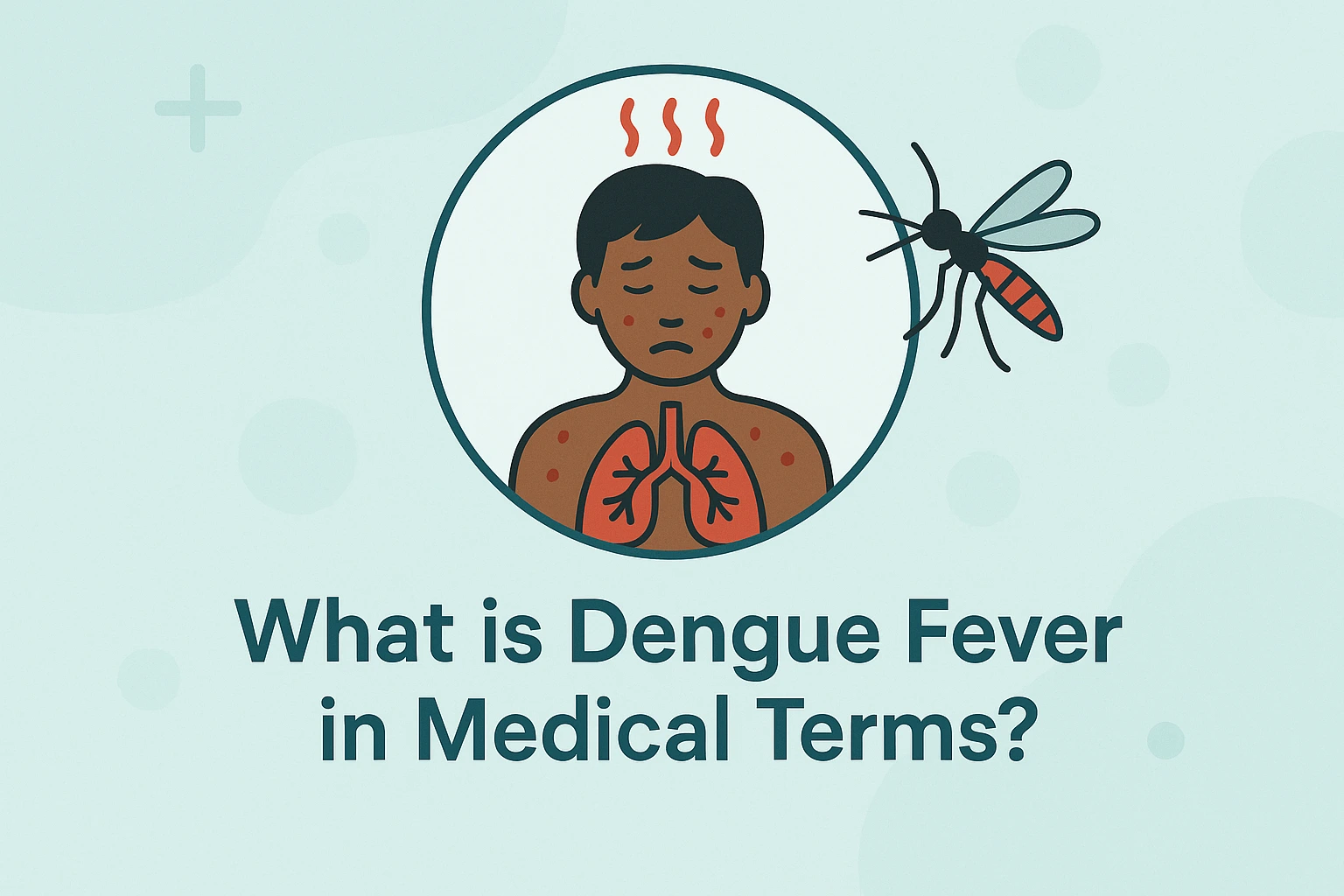Dengue fever is a viral illness transmitted by Aedes mosquitoes, particularly the Aedes aegypti species. It is characterized by sudden high fever, severe headache, pain behind the eyes, joint and muscle pain, rash, and fatigue. In some cases, Dengue Hemorrhagic Fever (DHF) or Dengue Shock Syndrome (DSS) can develop, leading to severe bleeding, organ failure, and potentially death. Dengue is most commonly found in tropical and subtropical regions, particularly in Southeast Asia, Africa, Central America, and the Caribbean.
If you experience symptoms such as high fever, severe headache, joint pain, and rash, especially after traveling to a dengue-endemic area, seek medical attention immediately. Early detection and proper management can prevent severe complications and improve recovery.

Symptoms of Dengue Fever
The symptoms of dengue fever usually appear 4 to 10 days after being bitten by an infected mosquito. Common symptoms include:
- High fever (often above 104°F or 40°C)
- Severe headache, especially behind the eyes
- Pain in muscles and joints, leading to the term “breakbone fever”
- Nausea and vomiting
- Rash, which can appear a few days after the fever starts
- Fatigue and weakness, which can last for weeks
In severe cases, individuals may develop Dengue Hemorrhagic Fever (DHF), which can cause:
- Severe bleeding, typically from the gums or nose
- Low platelet count, leading to a risk of internal bleeding
- Shock (Dengue Shock Syndrome), characterized by a significant drop in blood pressure
Causes and Transmission of Dengue Fever
Dengue fever is caused by the Dengue virus, which exists in four different serotypes (DEN-1, DEN-2, DEN-3, and DEN-4). Infection with one serotype provides immunity to that particular strain, but individuals can be infected with other serotypes, increasing the risk of developing severe disease. The virus is primarily spread through the bite of an infected Aedes mosquito, which becomes infected after feeding on the blood of a person who is already infected with the virus.
- Aedes mosquitoes are most active during the day, especially early in the morning and late afternoon.
- Environmental factors, such as standing water (in containers, puddles, or discarded tires), create ideal breeding grounds for mosquitoes.
When to See a Doctor for Dengue Fever?
Seek medical advice for possible dengue fever if you experience severe symptoms. These include persistent vomiting, severe abdominal pain, or signs of dehydration. Emergency signs are fainting, chest pain, or confusion, which require immediate attention.
Related Terms of Dengue Fever
FAQs for Dengue Fever
When should I go to the ER for dengue fever?
If you experience severe symptoms such as fainting, chest pain, or confusion, seek emergency care immediately.
How does heat affect dengue fever risk in the UAE?
High temperatures and humidity can increase mosquito activity, raising the risk of dengue fever transmission.
What are some ways to reduce the risk of dengue fever?
To lower your risk, avoid mosquito bites by using repellent, wearing protective clothing, and ensuring standing water is eliminated.
